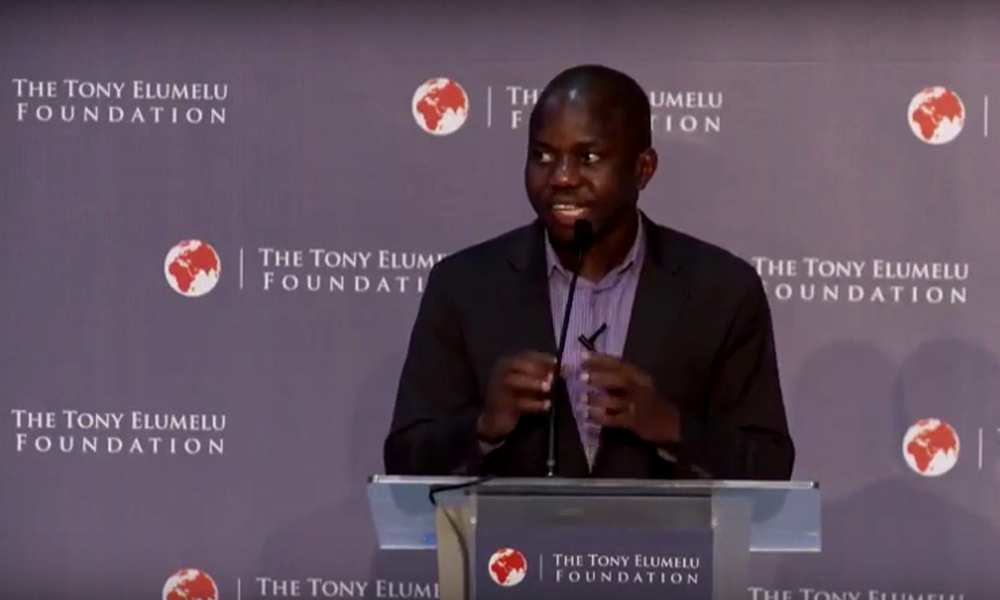Significantly, stablecoins are increasingly becoming the preferred choice for cryptocurrency transactions. According to Prof. Ndubuisi Ekekwe, founder of Tekedia, stablecoins’ popularity surge is driven by the desire for predictability in value and could potentially challenge bitcoin’s (BTC) long-term viability as the dominant cryptocurrency.
Prof. Ekekwe, in a recent post, notes that in the past two years, payments for Tekedia programs have largely transitioned from BTC and Ethereum (ETH) to stablecoins like USDT and USDC. As Prof. Ekekwe views it, this trend suggests that users prioritize stability and predictability over the volatility associated with traditional cryptocurrencies.
Stablecoins’ Rise to Prominence
Stablecoins, pegged to the value of a fiat currency (e.g., USD), offer a more reliable medium of exchange. With transaction costs and frictions minimized, stablecoins are gaining traction as a simple, everyday payment solution.
In Nigeria, Prof. Ekekwe predicts that a stablecoin version of the Naira, backed by robust settlement reserves, will become a more viable business model than relying on BTC transactions. This localized approach could revolutionize the crypto landscape.
Implications for bitcoin
As stablecoins gain more ground, BTC’s role may evolve into a primarily investment-focused asset class, rather than a transactional currency.
“I am coming to an early conclusion that Bitcoin will end up like a digital equivalent of gold. Yes, an asset class that mainly stores value. But since it does not have a physical component like gold, its long-term viability is not guaranteed. But as that happens, it is looking like the future is stablecoin within the crypto universe. Two years ago, many people paid for our Tekedia programs with BTC and ETH. But since Q4 2023, more than 90% of such crypto payments have been via USDT (ERC-20) and recently USDC”, Prof. Ekekwe stated.
This shift could lead to reduced marginal transaction fees, further diminishing BTC’s appeal for everyday transactions.
Future of Crypto: Localized Stablecoins
Prof. Ekekwe emphasizes the importance of building infrastructure in local markets, including native exchanges with associated stablecoins. This strategy will likely drive adoption and innovation in the crypto space. He recommends a “stablecoin version of Naira”. In his words, “Looking at Nigeria, a better crypto business will likely go through having a stablecoin version of Naira backed by strong settlement reserves, and not on buying and selling BTC since I do posit that in 5 years, many will move BTC to a pure investment asset class, reducing the marginal transaction fees.”
Interestingly, in December 2023, it was reported on Cointelegraph that a Naira-backed stablecoin called the cNGN is underway from a consortium of financial institutions, including a number of Nigerian banks. cNGN is designed to interoperate with public blockchains, including Bitcoin and Ethereum. And recently, the Securities and Exchange Commission (SEC Nigeria) issued an approval-in-principle to Wrapped CBDC Ltd, amongst 6 others. According to SEC Nigeria’s press release in August 2024, “c₦ is intended to be used to facilitate crypto/digital assets transactions on recognised digital Exchanges.”
The legal status of stablecoins in Nigeria still not clear
Interestingly, following recent reports from Nigeria, stablecoin transactions allegedly amount to violation of Nigeria’s foreign exchange law. This development is coming against the backdrop of Nigeria being one of the leading emerging economies with some of the highest stablecoin adoptions globally.
Last month, the Economic and Financial Crimes Commission (EFCC) secured an order from the Federal High Court to freeze N548.6 million in bank accounts belonging to suspected crypto users, alleging that they had roles to play in the fluctuations of the Naira. Cryptocurrency exchange platforms, including ByBit and KuCoin, were fingered out. Spanning months, federal government agencies, in their efforts to save the Naira from further depreciation have launched what seems to be a broad campaign and prosecution against alleged foreign exchange violations by foreign cryptocurrency platforms.
However, till date, neither the Nigerian legislature nor the Central Bank of Nigeria (CBN) has issued any stablecoin regulatory framework to at least clarify the legal status of stablecoins in the country. The lack of clarity and certainty in this regard throw up concerns amongst virtual assets service providers (VASPs). With its recent enforcement actions, Is the Nigerian government engaging in regulation by enforcement? Should lawmakers and regulators not improve clarity and certainty around stablecoin transactions in the country? Should the Foreign Exchange Act be the final and defining law and regulation stablecoin adoption in the country? What is the global best practice in this regard? Is there a place for industry engagement and co-regulation here? There are more questions than answers.
Conclusion
Prof. Ekekwe’s insights may not reflect the views of all experts or market participants. But as the crypto landscape continues to evolve, stablecoins are poised to play a significant role. With their predictable value and growing adoption, stablecoins may ultimately overshadow BTC as the preferred choice for transactions.
Will BTC transition to a purely investment-focused asset, or will it adapt to the changing landscape? How should Nigeria regulate stablecoins? Should they be banned? Share your thoughts with Man Around Town.
Discover more from Crypto Asset Buyer
Subscribe to get the latest posts sent to your email.





